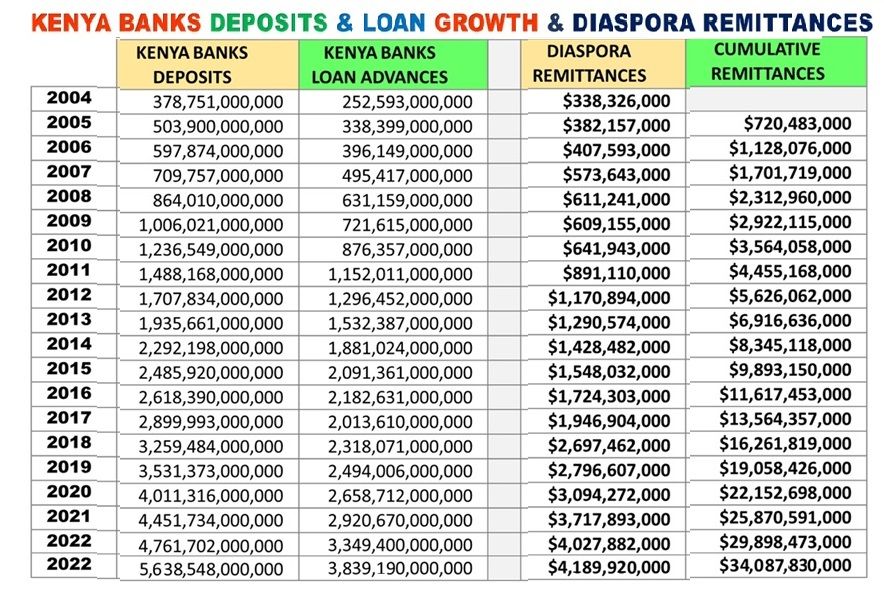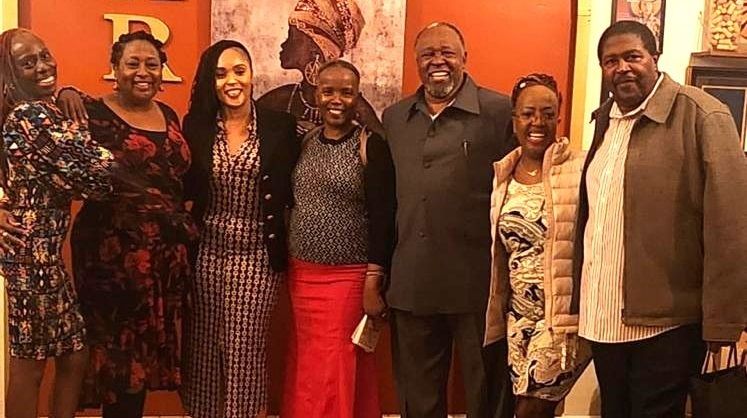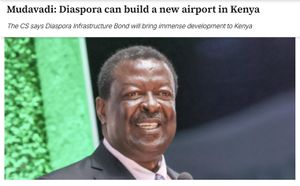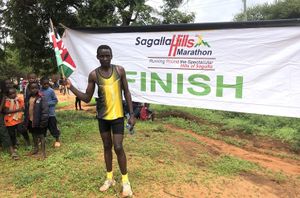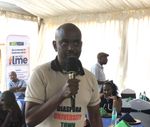The Diaspora Kenyans in San Francisco, CA took time to attend and consider becoming part of the Diaspora University Town (DUT) founders. The event was organized by Sylvester Mbithi and was attended by Kenyans at the Wachira Wines meeting room as well as through Zoom. The Diaspora University Town team presented the DUT project and answered questions.
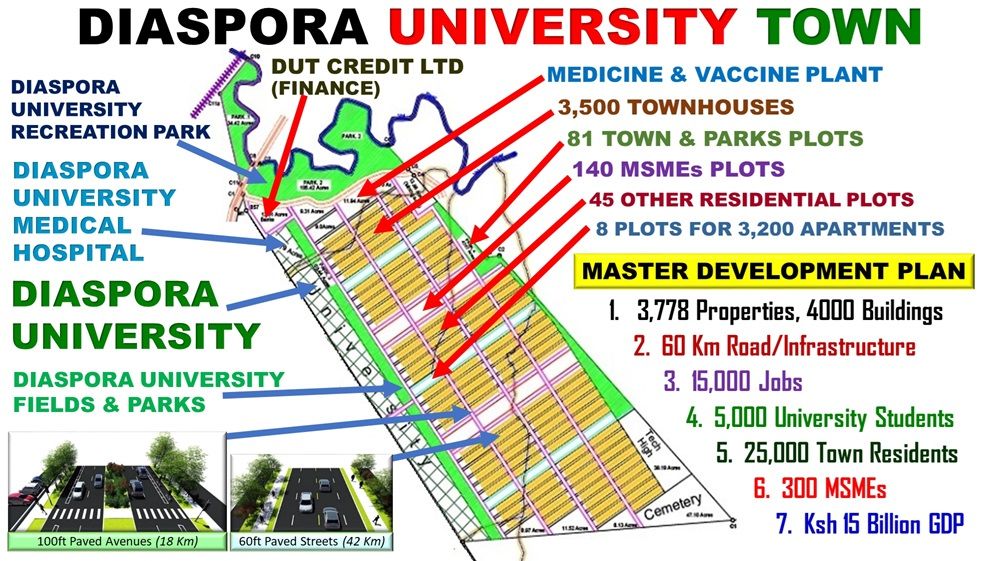
The Diaspora University Town (DUT) team present were Dan Kamau the project Director who joined the meeting through Zoom from Voi, Kenya; Prof. Philliph Mutisya of Raleigh, NC was attending in person at the Venue; Bui Thuo of Perris in Southern California travelled to San Francisco; Dr. Wilson Endege, the founder of Daktari Biotechnology Ltd a medicine and vaccines company joined from Boston, MA; Prof. Benson Edagwa, also part of the medicine and vaccines from Omaha, NE; and, Prof. David Ogoli the lead architect of DUT joined from Riverside, CA.
The team presented to over 30 Diaspora Kenyans of the San Francisco/Oakland Region who were at the Venue and in the Zoom meeting. They invited their fellow Diaspora Kenyans to consider joining DUT and be part of jobs creation, housing development and GDP growth.
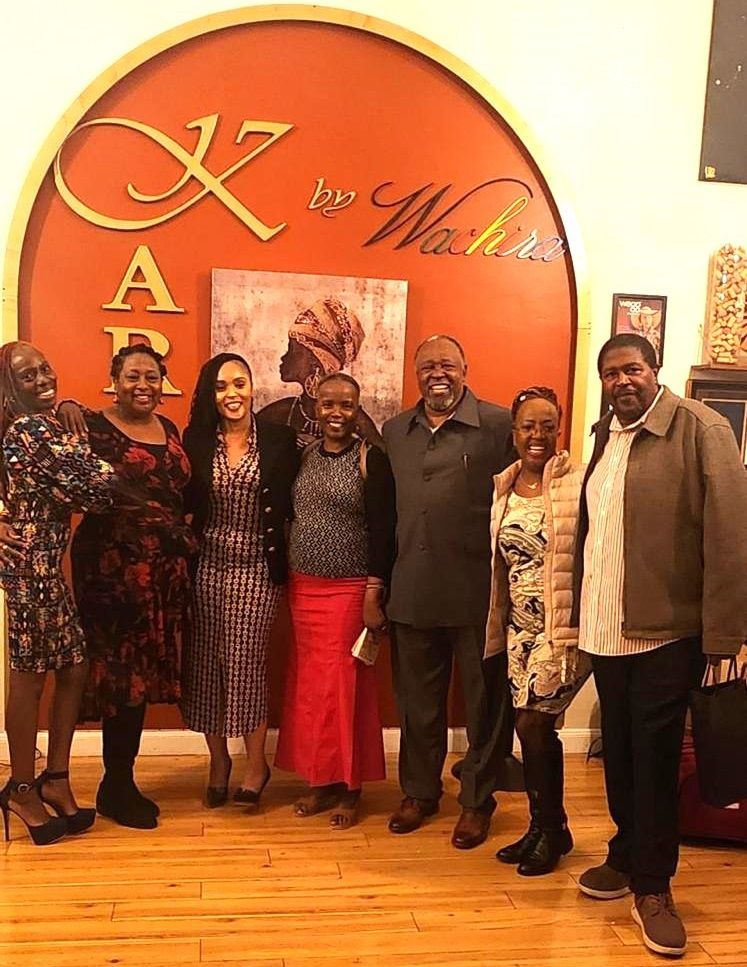
Some of the Questions answered during the presentations & discussions.
Who are the founders of Diaspora University Town (DUT) & Diaspora University?
The founders of Diaspora University Town (DUT) and Diaspora University are Diaspora Kenyans, Ndara B Community and Partners. The university and town development is by Diaspora University Trust in accordance with the Master Development Plan and other written conditions and agreements.
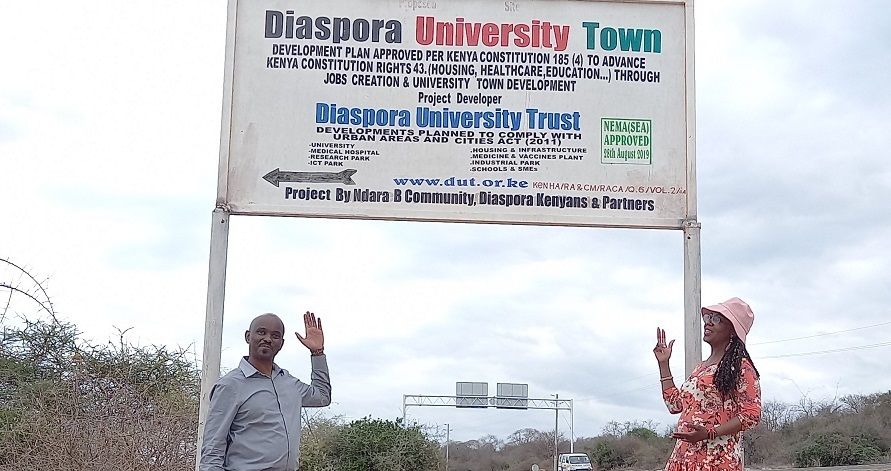
Why do I become a University Founder when I become a Townhouse Developer?
A person who signs Diaspora University Town – Town House Investment and Development Agreement (THIDA) and puts in capital in accordance with the THIDA becomes a Townhouse Developer as well as Diaspora University founder. The main reason for considering a Townhouse Developer as a founder of the university is that the townhouses are part of the university founding. The townhouses are for meeting the university faculty and staff housing needs.
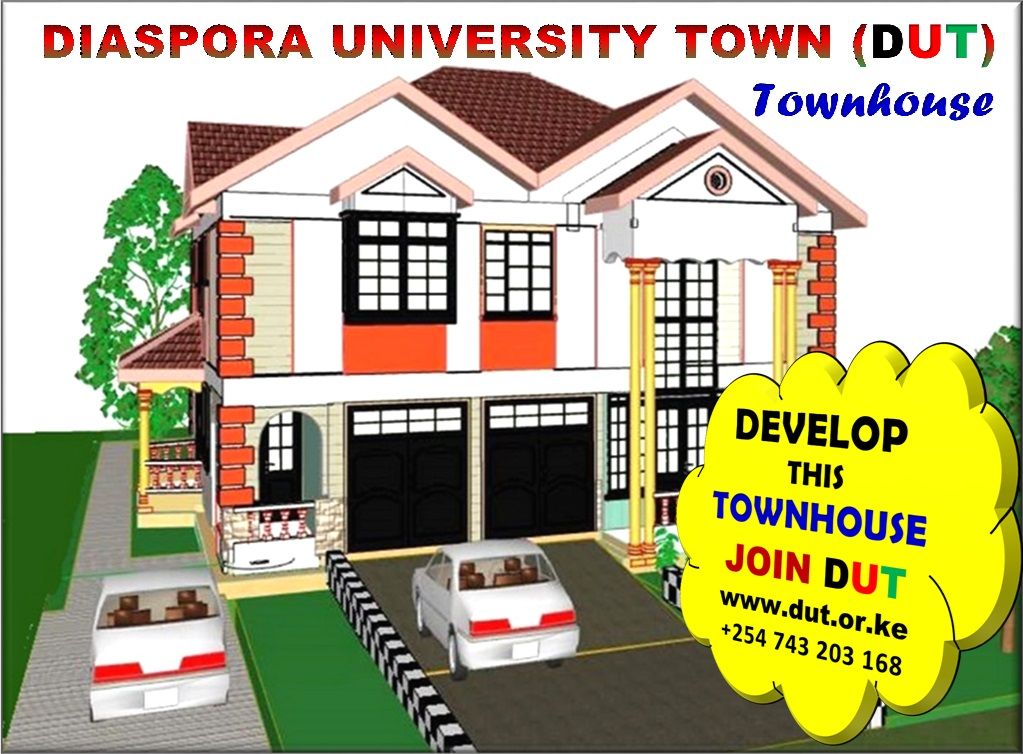
What is the difference between a Property Developer and Property Buyer?
A property developer puts in the capital that develops the property and owns the property at the start of development. A property buyer buys a completed property and owns the property when it is completed. Both a property developer and a property buyer do not 100% own a property if they borrowed money.
How will the project create 20,000 Jobs?
The project will create 15,000 jobs at Diaspora University Town and 5,000 at Ndara B 4,000 acres plan as tabulated. 2,500 will be university and hospital jobs, 500 town jobs in nine town departments and 12,000 jobs in MSMEs and Organizations.
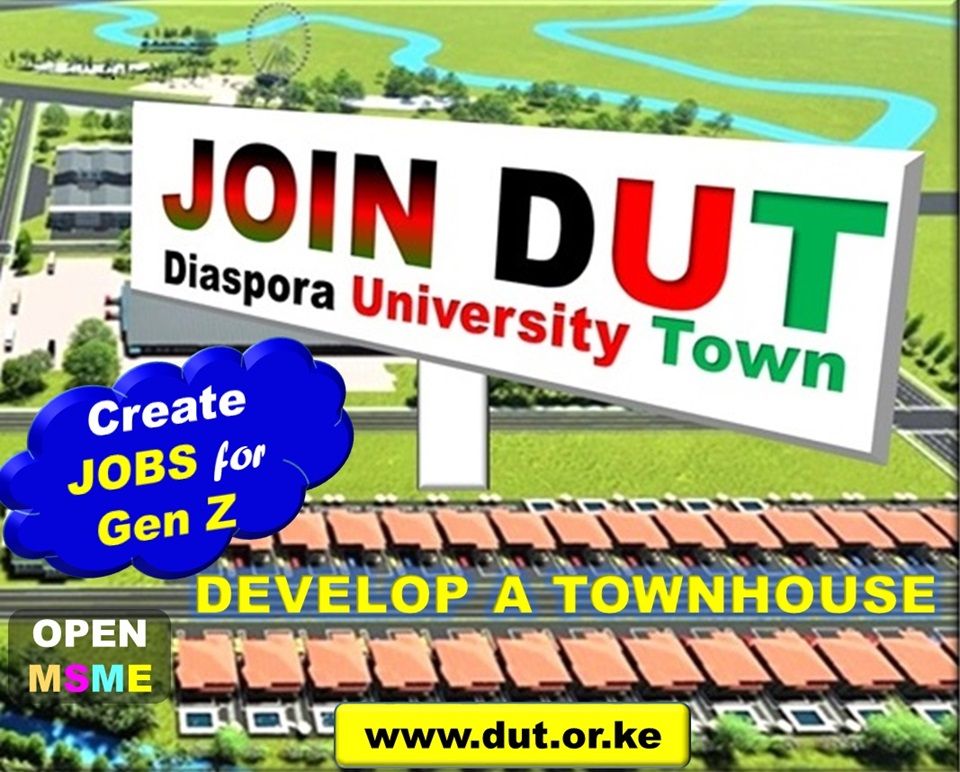
How will Diaspora University be different from other universities?
The goal of the University is to advance the Kenya Constitution rights of environment, social, economic, children and other rights through growing Kenya GDP. This is achieved through applying the WPI plan of project based learning and other systems. The university plan is based on advancing jobs creation through making land, human and money resources productive. The university will support jobs creation through MSMEs like Stanford University.
How will Diaspora University be financed?
The finance plan for Diaspora University is based on the endowment achieved and the provisions in the Master Development Plan. The current balance sheet is at Ksh 3.2 billion endowment. The endowment will grow to Ksh 20 billion through four plans as follows: Development Income, Returns from MSMEs Investments, MSMEs Save- Invest Capital Plan and Government Incentives (National & County)
The Ksh 20 billion endowment will fund: KSh 5.4 billion Property and Equipment Finance; KSh 665 million MSMEs Investments; and, KSh 14 billion Students Finance Fund.
As the first class graduates, Diaspora University assets will be about Ksh 30 billion. The assets financed by Endowment 20 billion, loans of about Ksh 10 billion and other donations from philanthropists.
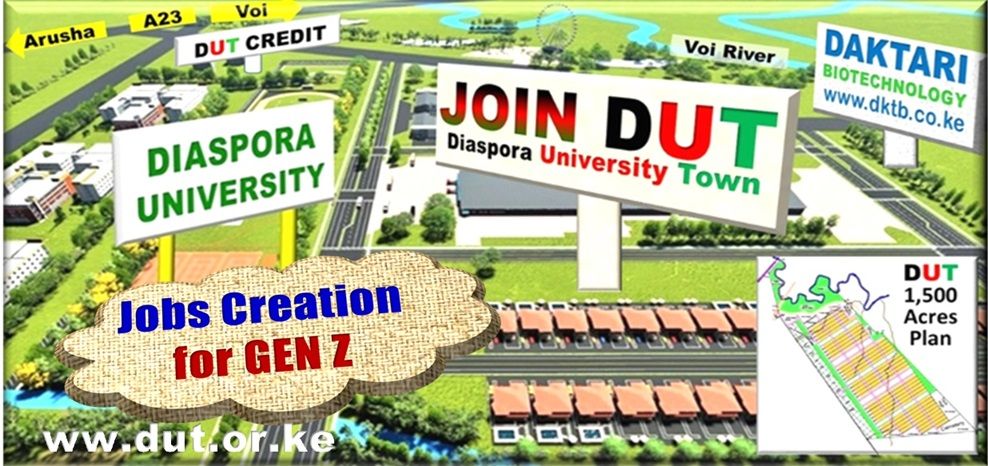
What is the University student’s intake, jobs plan and budgets?
The university intake plan is to grow to 5,000 students and create 1,000 faculty and staff jobs.
How will Diaspora University Medical Hospital be developed?
The hospital is for meeting the healthcare rights of the 5,000 university students, 25,000 town residents, Taita Taveta county residents and Kenyans.
Kenya constitution 43. (1) Every person has the right— (a) to the highest attainable standard of health, which includes the right to health care services, including reproductive health care; (2) A person shall not be denied emergency medical treatment.
The hospital development plan will start at Level 2/3 and progress to level 5/6. The budget will grow to Ksh 4 billion and 1,500 medical hospital jobs.

How will the University Property and Equipment be financed?
The property and equipment will be financed by endowment and loans. The buildings and loans repay and equipment usage in the budgets of University, Hospital and Town will repay the loans.
Will all the roads in the Town be paved?
All the 60km road network of streets and avenues will be paved. 20 Design Build production contracts of the 300 are for roads and infrastructure.
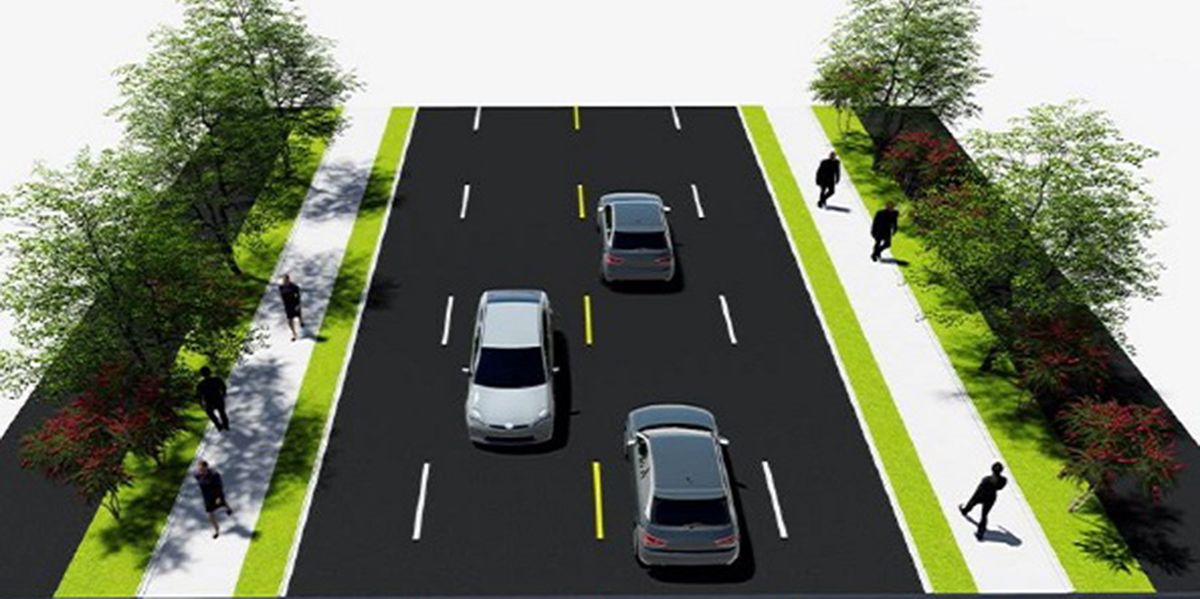
Where will the Water come from and how will the water be supplied?
The water sources include: Voi River, Boreholes, Mzima Springs, Njoro Springs, Sagalla Dam, Mughe Dam, Lake Challa and other sources. The water plan will ensure clean uninterrupted water supply. The supply will be done through tanks and a 60 km clean water infrastructure.
Where will the Energy of the Town come from?
The energy will come from the power grid. Other sources of energy plans are incorporated including putting solar in all the roofs of townhouses and waste to energy.

Which MSMEs are the key MSMEs of the Town?
The main MSMEs are: Daktari Biotechnology for Medicine and Vaccines production; Design Build Company for design and building of roads, infrastructure and property; DUT Credit Ltd of finance and Ndara B 15 Building Materials MSMEs.
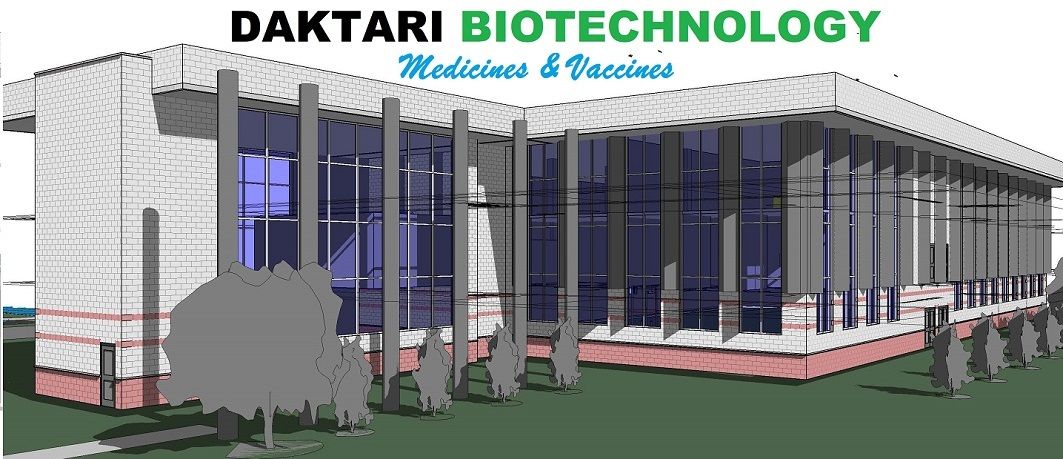
The three DUT MSMEs are expected to pass the Ksh 10 billion revenue mark by year 4. The Ndara B 15 MSMEs collectively are also expected to surpass the Ksh 10 billion revenue mark.
The MSMEs will play a role in housing and healthcare and expand their markets in Kenya and Africa as they create jobs for the Diaspora University students graduating.
Can an individual open an MSME?
Yes. About 200 of the 300 MSMEs and Organizations that will be opened at Diaspora University Town by individuals as sole proprietor or partnership businesses. Preference will be given to the founders who are Townhouse Developers and Ndara B Community members.
Individuals can also invest in MSMEs through establishment of a company in accordance with the Company act and share capital.
What is the Design-Build Plan?
The 1,500 acres design build plan includes: the 3,778 plots; the 60 km road network; the plots allocation to Diaspora University plans, Town Plan, MSMEs/Organizations plans, Residential and Roads; 4,000 building or structures to be erected; 6,900 properties development and registration; and, 6.900 properties finance plan.
How will these properties be built?
In the 5 year design build plan the 60km and about 3,750 structures and buildings will be completed through 300 DB production contracts as follows: 175 townhouse; 20 roads contracts; 25 university; 19 town; 6 other Residential; 45 MSMEs and Organizations; and, 10 apartments.
Production Contracts will range from 4 weeks to 50 weeks. A construction finance of about Ksh 1 billion will be applied for building. Once property is completed, the property will be paid off in cash and through loans or mortgage finance. The construction finance account refunded the money.
Can Owner make their own Townhouse Design?
The town design was set based on the consideration that the house can last even 100 years and be used by different users. However, the design allows the owner to make variations of: doors, windows, floors, staircase, roof, cabinets, plot landscape and other variations.
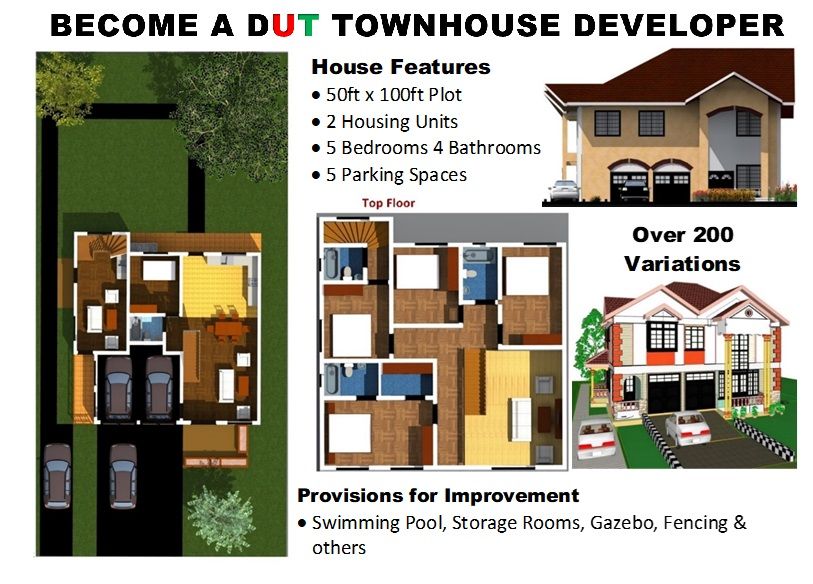
What is the townhouse development system?
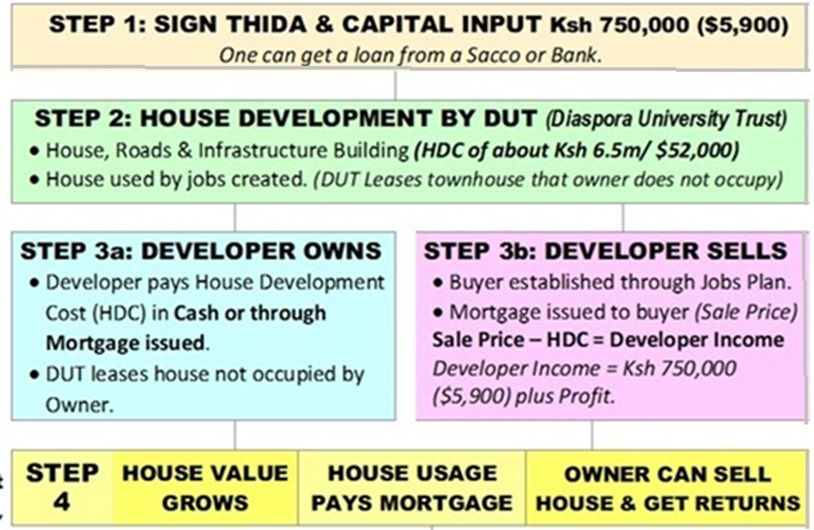
How will the townhouses be financed?
The development cost or sale price will be financed through the long term mortgages. The KMRC mortgage product of up to Ksh 10.5 million, single digit interest and 25 years tenor.
The Townhouses will create a new business of about Ksh 25 billion in mortgages for KMRC and the financial institution that is the primary mortgage lender.
What are the returns of the investors?
The 5 year development plan is estimated to achieve Ksh 150 billion new wealth and Ksh 20 billion GDP. The Ksh 150 billion will be held by the university Ksh 30 billion and individuals and MSMEs Ksh 120 billion. The university will have about Ksh 10 billion loan and individuals and MSMEs, Ksh 70 billion.
Who will finance the Ksh 70 billion?
Kenya Banking has been growing deposits mainly based on remittances. In 2023 the deposits grew by Ksh 900 billion. In the next 5 years the DUT jobs creation plan, Diaspora remittances and other Kenya economic plans will grow deposits by over 5 trillion and loans will grow by over Ksh 4 trillion. The Ksh 70 billion will be financed by this growth.
